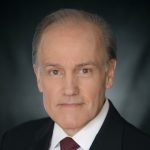 Each December we ask a panel of industry experts to identify the biggest moments in IP for the previous year, and likewise ask them for their wishes for the new year. Each year I also attempt to do similar article on predictions for the year ahead, but I haven’t always been able to find enough industry insiders willing to go out on a limb and actually make predictions. Starting last year I took a slightly different approach. I asked the experts to identify specific topics of interest to watch as the year unfolds. That question not only produced a great response, but it also provoked a few experts to offer predictions. So with that in mind another series was born, and continues this year with Predictions and Thoughts for 2019.
Each December we ask a panel of industry experts to identify the biggest moments in IP for the previous year, and likewise ask them for their wishes for the new year. Each year I also attempt to do similar article on predictions for the year ahead, but I haven’t always been able to find enough industry insiders willing to go out on a limb and actually make predictions. Starting last year I took a slightly different approach. I asked the experts to identify specific topics of interest to watch as the year unfolds. That question not only produced a great response, but it also provoked a few experts to offer predictions. So with that in mind another series was born, and continues this year with Predictions and Thoughts for 2019.
Given that several industry insiders were willing to make their own predictions, I’ll go out on a limb and make my own predictions… First, I predict Congress will do nothing on patent reform in 2019. With a divided Congress and a House of Representatives that could well spent precious legislative time on impeachment and other investigations, intellectual property matters likely won’t register even a blip on the public radar inside the beltway. Second, I predict there will be much effort behind the scenes on Capitol Hill to position various legislative fixes to 35 U.S.C. 101 so that when attention does turn to patent eligibility the ground work will be laid and much of the heavy lifting already done. So, if you think you can sit out 2019 because nothing is happening you’d be incorrect. Those that want to influence the next round of patent reform have already been working and by the time it is rolled out publicly it will be too late. Third, I predict the United States Patent and Trademark Office will define the term “abstract idea”. This is hardly going out on a limb since Director Iancu has all but promised just that in a speech given at Georgetown on November 26, 2018. Since the courts refuse to define the term the USPTO will closely identify only those innovations that the Supreme Court has identified as representing an “abstract idea” and closely define the term to mean those things and only those things are abstract ideas, with everything else in the computer implemented universe not being directed to an abstract idea and, therefore, patent eligible under Step 2A of the Alice/Mayo framework.
Now, without further ado, the thoughts and predictions of our esteemed panel.
 Roberta Romano-Götsch
Roberta Romano-Götsch
Chief Operating Officer
European Patent Office (EPO)
First of all, we have three new Vice Presidents taking up their posts at the EPO in January 2019. Their work will constitute a major contribution to the development of the patent system both internationally and at European level.
Second, we hope that there will be further progresson patent reform in Europe with greater clarity on the status of the Unitary Patent and Unified Patent Court. This new route to patent protection in Europe will certainly be of interest to US businesses, too, and we hope that the long-awaited reform will finally come to fly.
And third, a word on Brexit: It is worth recalling that whatever Brexit scenario will apply, it will not affect the UK’s membership of the European Patent Organisation. We are not an EU agency, but an independent, intergovernmental institution. This means that we will continue to grant European patents that are valid in the UK, and British businesses can continue to cover Europe through the EPO route as before.
Roberta Romano-Götsch is the Chief Operating Officer of Mobility and Mechatronics at the European Patent Office (EPO). As Chief Operating Officer of one of the three technical areas at the EPO, Ms. Romano-Götsch has responsibility for leading 1,600 patent examiners, managers and administrative staff members in Munich and The Hague. In addition to leading Mobility and Mechatronics, she is also chair of the EPO’s Operational Quality Committee.
 Bob Stoll
Bob Stoll
Partner, Drinker Biddle
Presidential investigations and controversial issues in a divided Congress will consume the time from the Congressional calendar this year. And the Supreme Court will likewise be engaged in social concerns and assertions of executive privilege for much of their time, so I don’t expect significant action on the legislative or judicial front on IP this year. I do believe we will see Director Iancu continue to use rule-making to improve processes at the USPTO, but his abilities there are already limited by the courts and the statutes.
That is not to say nothing will be happening on IP during 2019. I believe it will be a building year!
I think the discussions surrounding patent subject matter eligibility will deepen and we will likely see more articles in the main-stream press decrying the harm to the economy the “Alice test” has conferred on our domestic emerging technologies. We may see more 101 legislative language that addresses concerns but meets the needs of those who resist the current language. At the same time, I think we will see savvy patent filers reevaluate their strategies. Innovative companies will more readily use trade secrets to protect those areas where patent protection is currently questionable. In some areas, diagnostic methods and algorithms may be candidates for trade secret protection. Also, as models change, we may see a wider embrace of open-source software.
As filings related to artificial intelligence, cyber security, 5G-related innovations, personalized medicine, cloud computing, processes manipulating big data and autonomous vehicles explode we may engage in discussions as to whether the current system adequately stimulates innovation in these areas or whether a sui generic right needs to be investigated to protect some of them.
In any event, I think it will be a very interesting year in IP where we investigate new ideas to stimulate innovation.
Robert L. Stoll has more than 40 years of experience in intellectual property prosecution. Bob retired from the USPTO as Commissioner for Patents at the end of 2011 after a distinguished 34-year government career. Bob serves as an expert on patent matters, and is known as a problem solver for cases with peculiar issues and problems. He is now Co-Chair of the Drinker Biddle Intellectual Property Group, and a member of the Patent Masters Faculty.
 Stephen Kunin
Stephen Kunin
Partner, Maier & Maier
While I am pessimistic that we will see much action in Congress in 2019 on patent reform and little progress in the area of substantive patent law harmonization, I am hopeful that the U.S. will continue to work with its trading partners to enhance IPR protection globally. I do not see much in the way of new free trade agreements with strong IP sections in 2019 I remain hopeful that the Director will be a strong leader in intellectual property discussions with other U.S. agencies and foreign governments and offices on global patent work sharing and enhancing the respect for and protection of intellectual property rights worldwide.
Stephen Kunin is currently a partner with Maier & Maier. He serves as an expert witness and consultant on patent policy, practice and procedure. Mr. Kunin served three decades at the USPTO, including 10 years as Deputy Commissioner for Patent Examination Policy. Mr. Kunin is also a member of the Patent Masters faculty.
James Pooley
Patent and Trade Secret Litigator
Having in mind Yogi Berra’s admonition about predicting the future, I will venture only a couple of events in my wheelhouse that seem likely based on facts that we know.
First: Congress will clarify and strengthen the extraterritoriality provisions of the Defend Trade Secrets Act, to ensure domestic remedies for foreign misappropriation of U.S. trade secret assets.
Second: In the wake of the widely panned E.J. Brooks decision limiting the kinds of damages that can be recovered for trade secret misappropriation, New York, the only state without a version of the Uniform Trade Secrets Act, will finally enact it, replacing its reliance on the outmoded 1939 Restatement of Torts.
James Pooley has over 35 years experience as a successful Silicon Valley trial lawyer. Pooley possess deep knowledge of patents and trade secrets. In fact, Pooley has quite literally written the book on trade secret law, with his latest title “Secrets: Managing Information Assets in the Age of Cyberespionage”. Pooley is also a Member of the IP Hall of Fame, inducted in 2016, and he spent 5 years serving as a diplomat and manager of the international patent system (PCT) as Deputy Director of the World Intellectual Property Organization.
Image Source: Deposit Photos.

![[IPWatchdog Logo]](https://ipwatchdog.com/wp-content/themes/IPWatchdog%20-%202023/assets/images/temp/logo-small@2x.png)

![[[Advertisement]]](https://ipwatchdog.com/wp-content/uploads/2024/04/Patent-Litigation-2024-banner-938x313-1.jpeg)

![[Advertisement]](https://ipwatchdog.com/wp-content/uploads/2024/04/Artificial-Intelligence-2024-REPLAY-sidebar-700x500-corrected.jpg)
![[Advertisement]](https://ipwatchdog.com/wp-content/uploads/2024/04/Patent-Litigation-Masters-2024-sidebar-700x500-1.jpg)

![[Advertisement]](https://ipwatchdog.com/wp-content/uploads/2021/12/WEBINAR-336-x-280-px.png)
![[Advertisement]](https://ipwatchdog.com/wp-content/uploads/2021/12/2021-Patent-Practice-on-Demand-recorded-Feb-2021-336-x-280.jpg)
![[Advertisement]](https://ipwatchdog.com/wp-content/uploads/2021/12/Ad-4-The-Invent-Patent-System™.png)






Join the Discussion
18 comments so far.
Anon
January 4, 2019 06:20 pmMayer’s last concurrence should cause more than just “reeling.”
(I get that feeling, and am not diminishing it).
Instead, Mayer’s last concurrence should get him removed from the bench — on its own and/or persistent motions for recusal from every single attorney who draws him on a panel (and if attorneys paid heed to their call for ethics, the motion for recusal should come from BOTH parties in every case that Mayer shows up).
B
January 4, 2019 01:12 pm@ anon “If anything, given their power and the nexus as to why attorneys even have an ethics code (our relation to the law), the Supreme Court should be even more in the target sights for reproach when what they do goes beyond their authority.”
I merely accuse the SCOTUS of being stupid by virtue of overlooking the 1952 Patent Act. Remember how Bilski encouraged the lower courts to look at statutory language to address the actual language of s100 and s101? That was short lived. Once Bilski stated that business methods were patent eligible under 101, the analysis should have proceeded to 102/103 where In re Venner and KSR v. Teleflex would have aptly disposed of the claims at issue.
Alice was the same issue as Bilski. Old, conventional business method using a known machine with no additional claim limitations having a function that changed the underlying process the slightest.
Same with Mayo. It would be purely obvious as a matter of common sense to administer a drug at levels that would have some appreciable beneficial effect yet not so much as to kill the patient. Finding those levels is a matter of routine experimentation.
It shocks me that the SCOTUS can’t conceive of these simple issues all on their own.
Its the CAFC I think is truly problematic. I’m still reeling from Mayer’s last concurrence. Judge Mayer, I encourage you to read the Federal Rule of Evidence 201 and perhaps a basic text on evidence, Sound disrespectful? I don’t mean it to be, but whenever a judge makes statements so divorced from statutory laws and constitutional due process, some criticism is warranted.
Anyway, I have several petitions I will file in the SCOTUS soon on the same issues that you consider problematic. Consider even a short amicus.
Anon
January 4, 2019 12:30 pmThanks B – one of my pet peeves (if you could not tell) is the fact that so many attorneys are apparently blasé — or worse — about the situation of what the Court has been doing.
We attorneys each have taken a State oath. In most all** cases, that State oath places our duty to the Constitution ABOVE each and every of the three branches of the government, INCLUDING the judicial branch and the Supreme Court.
And yet, far too often I run into the mindset that the Supreme Court is somehow “off limits” from reproach.
If anything, given their power and the nexus as to why attorneys even have an ethics code (our relation to the law), the Supreme Court should be even more in the target sights for reproach when what they do goes beyond their authority.
A good place to start refreshing some of these views; https://billofrightsinstitute.org/founding-documents/primary-source-documents/the-federalist-papers/federalist-papers-no-51/
**the only arguable — and it is a weak argument at that — State oath that ‘fudges” the ethical duty a bit is the oath from the Commonwealth of Massachusetts (as it tends to treat the Court as some type of “favored client”).
B
January 4, 2019 11:15 am@ Anon “And it is about time that critical thinking is employed to distinguish ‘interpretation’ and ‘re-writing.”’
Your points mirror my own. The F.C. has interpreted 101 to the point of rewriting/corrupting 101.
The following is from a petition I intend to soon submit to the SCOTUS
The courts often quote § 101, but apparently never read it. The courts ought to read § 101. There’s a lot of good law there. The courts are not entitled to take the simple and clear text of § 101 and remove half its language while adding new requirements. Such amounts to maladicta est exposition quae corrumpit textum – an interpretation which corrupts the text.
B
January 4, 2019 11:01 am@ Paul Cole
I once spent a summer in Munich – on Oettingstrasse near the English Gardens, the University and the Isar. One of my favorite summers ever. Bavarians are a warm and friendly people but “humor?” Bavarians and the rest of Germany are just not in the same class as any Anglo culture. On the other hand, it took the U.S. nearly another two decades before I could find a variety of sources that had more than the usual urine that then passed for American Beer.
That said, the Starr Report was interesting to me in three respects. First was Vernon Jordan. Mr. Jordan was completely exonerated to no one’s surprise who had ever met him. Second was the laughable extent Clinton went to in order to parse common language — could make an examiner blush. Third was the complaints from the Democrats. “Hey, this Report is too thorough.”
B
January 4, 2019 10:37 am“I have to chuckle every time that I see someone pronounce that the AIA was passed by a “united” Congress”
I have heard from a large number of people, including examiners, who believe that the AIA was a giveaway to large corporations at the expense of small corporations.
With this in mind, I have been able to take great advantage of the removal of the “best mode” requirement.
Much easier to keep trade secrets now, which is necessary given Alice/Myo
Anon
January 4, 2019 08:04 amI have to chuckle every time that I see someone pronounce that the AIA was passed by a “united” Congress.
That’s delve into that.
It was the “Citizens United” effect uniting the Congress, as both sides of the aisle were swayed by the big money “voices” of the Efficient Infringer movement.
Pretending that “united” is different than “captured” shows a lack of grasp of the reality on the ground.
This is also why I am more than a little skeptical that Congress will actually do what they should do and employ their Constitutional power of jurisdiction stripping of the non-original jurisdiction of patent appeals from the Supreme Court (and re-set the brow-beaten CAFC back on its original purpose to strengthen the patent system).
So while skeptical, we should not be misconstruing any notion of “united” in some unthinking way.
Anon
January 4, 2019 07:56 amThe “spin” that may be used is reflected in my “I have a [patent] dream” post in that the executive branch enforces the law and they may simply “reflect” the statutory law (read that has constraining to their very same set of facts the attempts to re-write the statutory law with Common Law law writing by the judicial branch {or even the executive branch itself by following what the judicial branch has set forth} and simply STOP using Common Law law writing of the Court.
And it is about time that critical thinking is employed to distinguish “interpretation” and “re-writing.”
Paul Cole
January 4, 2019 06:00 am@4
I remember travelling to Munich for a hearing (called “oral proceedings” in EPO-speak) and buying a copy of the Starr report in the airport shop to read on the way.
When I reached the EPO I had my big square briefcase in one hand and my copy of the Starr report in the other and introduced myself to the receptionist. He said: “Ah Mr Cole! You must be here for oral proceedings.” We were both overcome with laughter for at least a minute. Any allegation that our German colleagues lack a sense of humour is completely false.
B
January 3, 2019 10:48 pm@ Gene “Whether the USPTO has substantive rule making authority or not, the USPTO is going to de facto define the term ‘abstract idea.'”
Well, there’s at least one grown-up in government.
Gene Quinn
January 3, 2019 09:37 pmDavid-
Take a look at Director Iancu’s speech from November 26, 2018. Whether the USPTO has substantive rule making authority or not, the USPTO is going to de facto define the term “abstract idea.” And frankly, it is about time since everyone else with direct authority to do so has refused.
David Boundy
January 3, 2019 08:37 pm> Third, I predict the United States Patent and Trademark Office
> will define the term “abstract idea”.
The PTO has no substantive rulemaking authority. The career staff (the PTAB, Commissioner, and Deputy Commissioner for Examination Policy) have very poor understanding of administrative law, but the absence of substantive rulemaking authority is one thing that most understand (a few APJs excepted — note for example Ex parte McAward). Two good papers on that subject are https://ssrn.com/abstract_id=3258044 and https://ssrn.com/abstract_id=3258694
> With a divided Congress and a House of Representatives that
> could well spent precious legislative time on impeachment and
> other investigations, intellectual property matters likely won’t
> register even a blip on the public radar inside the beltway.
As important as I think intellectual property is, the institutions of democracy are more important. That’s a tradeoff I’ll accept. And let’s not forget that the Market Incumbents Entrenchment and Disruptive Innovation Suppression Act of 2011 (occasionally referred to as the America Invents Act) had more Republican support than Democratic.
B
January 3, 2019 12:28 pm@ Paul Cole “I don’t really think that the misdemeanours of Bill Clinton really cut the mustard either,”
Actually, Clinton committed perjury and obstruction of justice – two felonies for which the DoJ gave him a pass after he left office. The really powerful don’t get prosecuted in our little banana republic.
That said – still doesn’t rise to a high-crime w/I the Constitutional sense.
B
January 3, 2019 12:23 pmPaul Cole “I don’t think that saying mean things and cavorting with porn stars comes even close.”
Not to the sane. That said, welcome to American politics, where the insane rule as capriciously as the Federal Circuit.
Paul Cole
January 3, 2019 12:20 pmHigh crimes and misdemeanours are exemplified by Andrew Johnson’s removal from office of Edwin Stanton. In the British case of Warren Hastings it was mismanagement and corruption in the government of India and the judicial killing of Maharaja Nandakumar.
I don’t think that saying mean things and cavorting with porn stars comes even close. I don’t really think that the misdemeanours of Bill Clinton really cut the mustard either, the report of Kevin Starr (which I bought hoping that it would be an outstanding example of legal fact-finding and advocacy) rising to a pinnacle of achievement insofar as it made it boring to read about sex. However, shutting down the US government, possibly for an extended period, in pursuit of a partisan immigration policy might come close.
Either way, I doubt that patent reform will be high on the agenda this year.
step back
January 3, 2019 11:53 amMaybe with Apple stock collapsing and 401(K) plans following suite, the “public” will wake up and come to realize that innovation in America is dead and has been so for quite awhile, thanks in part to the DOA patent system.
B
January 3, 2019 09:06 am“I personally am hopeful that the incoming House will forget all about impeachment . . . ”
Forget it. Trump is obviously guilty of saying mean things and cavorting with pornstars and playmates. Obviously high-crimes that must be addresses. The Dems are as useless as the Republicans.
I expect it is more likely that Congress will be more involved with special pronoun legislation for all 106+ genders than anything as trivial as intellectual property.
Anonymous
January 3, 2019 05:09 amI personally am hopeful that the incoming House will forget all about impeachment, and, in contrast to the previous House, seek to do useful things, such as fix up the deficiencies you have pointed out, Gene.